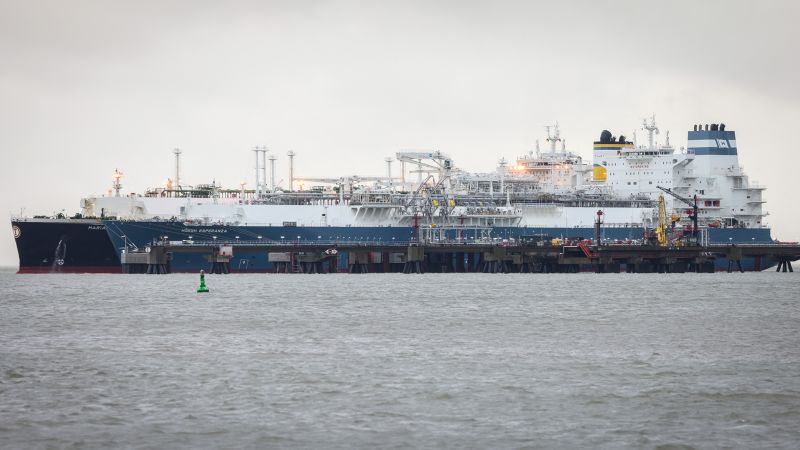Bussiness
EU exit watch — resetting Britain’s relations with Europe | International Business – East Lancashire Chamber of Commerce

Contact us now for all your importing and exporting questions international@chamberelancs.co.uk 01254 356454.
Europe was the topic that no politician wanted to address in the run-up to the recent election but, four weeks and a decisive Labour victory later, there are some difficult conversations on the horizon. This feature looks at how the relationship between the EU and Britain might be reset.
The new Foreign Secretary, David Lammy, confirmed that “throughout my political career, I have been absolutely committed to a close partnership with our European neighbours”. Mr Lammy has spoken to EU foreign policy chief Josep Borrell and the pair agreed to meet at the earliest convenient time. The Foreign Secretary is likely to attend the September meeting of the EU foreign affairs council and has already visited Germany, Poland and Sweden.
Meanwhile Prime Minister Sir Keir Starmer was given an early opportunity for informal talks with European leaders as he took advantage of a previously planned meeting of the recently formed European Political Community (EPC) to welcome the heads of the EU institutions and the leaders of NATO, the Council of Europe and the Organisation for Security and Co-operation in Europe (OSCE) to Blenheim Palace. The only European governments not invited were Russia and Belarus. At the very least, this gave the Prime Minister the opportunity to promise to be, as he put it, a “good neighbour”.
Trouble at the border
Asked about improving trading arrangements with the EU, Sir Keir said:
“We do have to get on with implementing the important changes that are necessary under the existing arrangements we have got, because we are not going to be able to get a better relationship unless we demonstrate a commitment to the relationship and the agreements that have already been put in place.”
This may, however, be a case of more easily said than done.
Last month, we saw warnings from leading trade groups with regard to the impact of the EU’s new Import Control System (ICS2). Now the UK’s Horticultural Trades Association (HTA) and a number of trade bodies from the same sector across the EU have published an open letter arguing the need for reconsideration of the measures making up the Border Target Operating Model (BTOM). This came into force at the borders of Great Britain on 30 April and has already been the subject of protests at the costs and checks involved. The new letter includes detailed examples of the costs being incurred by small businesses trying to move plants and plant products across borders.
Highlighting that the UK has a unique border with the EU in terms of trading such products, the letter points out that nowhere else in the world is there a border that sees such a volume of plants and plant products traded between countries that do not have a form of Sanitary and Phytosanitary (SPS) arrangement, recognition or agreement.
With delays being experienced at the border control posts, the letter also warns of problems relating to driver welfare. Drivers are now unwilling to bring goods across the border due to long hours spent waiting on docksides and poor driver welfare, it states. Welfare should be addressed at all ports, the letter goes on, as welfare facilities are inadequate and vary according to port. Citing deep concerns about the detrimental impact of the UK’s border policy on horticulture, the HTA and six European trade groups ask the incoming Government for engagement and action on costs, systems, data and plans.
Norway revisited
In the immediate aftermath of the 2016 referendum, as various politicians advanced conflicting ideas about how the UK should proceed with its path away from the EU, there was some support for the idea of following Norway’s example. This would have involved an arm’s length relationship with the EU with access to the single market on the one hand but, on the other, having to accept any relevant legislation without having had any input into the formation of those laws.
The idea was still being discussed as late as 2018 but then disappeared as Theresa May was replaced as Prime Minister by Boris Johnson. Surprisingly it has reappeared in recent discussions as Labour looks to redefine its position on Brexit. With freedom of movement also part of Norway’s agreement with the EU, however, it remains hard to see this suggestion getting any further. It would probably require the UK to rejoin the European Free Trade Association (EFTA) of which it was a founder member on 1960 and which it left in 1973 to join the EU.
Small firms find exporting to the EU difficult
A new report from the Centre for Economic Performance (CEP) at the London School of Economics (LSE) has suggested that the negative effect on UK trade has been smaller than economists expected but that smaller goods exporters to the EU have suffered most from the new trade costs created by the UK-EU Trade and Cooperation Agreement (TCA). The report, Brexit and EU Trade, available here, cites statistics produced by HMRC which show that the number of firms exporting to the EU fell to approximately 100,000 under the TCA compared to some 120,000 in 2019 and earlier years.
The loss of around 20,000 exporters, the CEP argues, is entirely accounted for by exporters with fewer than 10 employees. Focusing on trade with EU countries, the TCA has reduced exports to the EU by around 30% for small firms, but it has had no effect on large firms’ exports to the Union. The UK’s proximity to the large consumer and input markets in EU countries will always present the greatest opportunity for trade, the report argues. The UK therefore faces a basic trade-off: move closer to the EU, in terms of legislation, to increase UK trade and living standards; or remain distant from the EU and continue paying the price of new and emerging trade barriers.
“Brexit is still playing out”, the CEP highlights. “The UK continues to deviate from EU policy due to active and passive regulatory divergence, which further increases trade costs for UK businesses.” Furthermore, it goes on, new trade agreements with countries outside the EU cannot compensate for the reduced access to the Union’s single market. “Global Britain” as a strategy for international trade is, the CEP concludes, a fantasy.
Closer links for young people
We reported in May that the European Commission had offered to open negotiations on an agreement to make it easier for young EU and UK citizens to study, work and live in the UK and the EU respectively. This was going to be put to the Member States for their approval but before they had time to consider the proposal, it was rejected out of hand by the then Prime Minister, Rishi Sunak, who said the UK was only interested in bilateral deals with specific countries.
Speaking as reported above about new links with the EU, David Lammy said:
“We must do more to champion the ties between our people and our culture. Holidays, family ties, school and student exchanges, the arts, and sport.”
However, it is believed that the new Prime Minister is no keener on the idea than his predecessor.
What about trading links?
Sir Keir has said several times that he can get a better Brexit deal with the European Union than the “botched” agreement made by Boris Johnson, and Chancellor Rachel Reeves has also indicated there is scope for improving trade links with the EU. Trade Secretary Jonathan Reynolds agreed that removing some of the barriers to trade makes sense, with particular reference to recognising each other’s professional qualifications.
“We are seeking a closer, more mature, more level-headed relationship with our friends in the European Union — our nearest and largest trading partner,” he said, but then added “We’re not open to the free movement of people, that is something that is part of membership of the European Union and, as I said, we’re not revisiting that.”
The Prime Minister has said that he does not expect to see the UK applying to rejoin the single market or customs union in his lifetime but his predecessors delayed the introduction of full border checks of imports from the EU five times since Brexit — citing, among other reasons, the pandemic, having to resolve the situation with regard to Northern Ireland and needing to give more time to businesses to adapt to the forthcoming changes. At some point the Government will have to decide, if it is determined that single market membership will not be an option, what border checks it is prepared to accept, as well as the degree of alignment it is prepared to keep with EU product legislation in order to minimise the required checks.
And that may be the crux of the expected talks between the new Government and new European Commission: Westminster wanting to remove barriers to trade; Brussels wanting to reintroduce some measure of freedom of movement and insisting on parity with its standards. Add in the likely EU requirement that the Court of Justice (CJEU) should have a role to play in deciding on trade disagreements and the stage is set for some difficult conversations.
This article was created and published by Croner-i Ltd – you can view the original article HERE.
For more news, click here.










